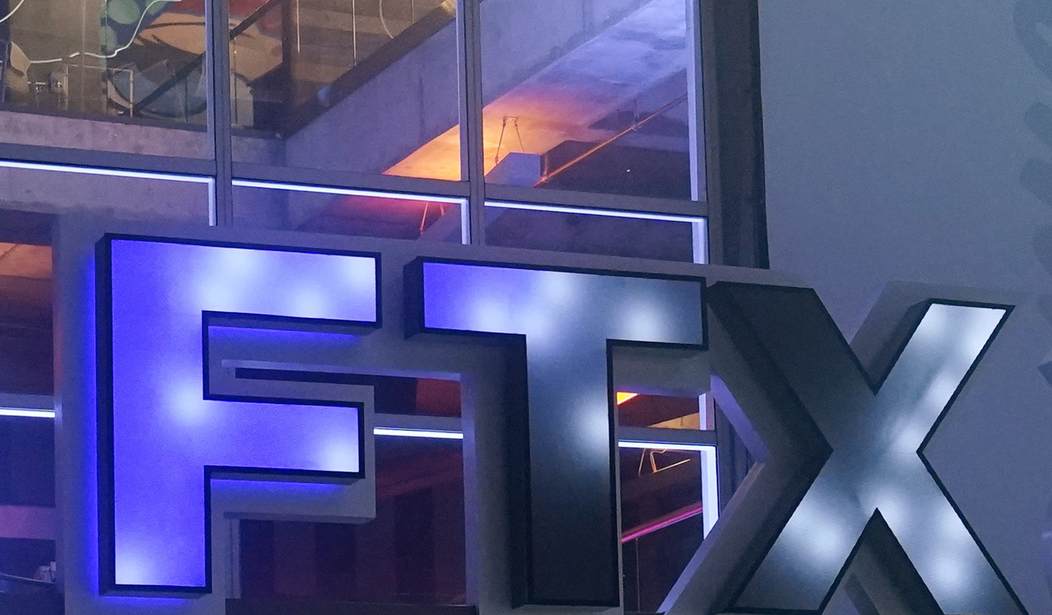The Bankman-Frieds “spent billions of dollars operating a vast array of left-wing advocacy groups that present themselves to the public as grassroots initiatives,” according to a lawsuit filed by Bankman-Fried’s defunct cryptocurrency exchange FTX. The so-called dispenser of “dark money” was Arabella Advisors, which describes itself as partnering “with people and groups working to achieve philanthropic goals through grantmaking, advocacy, impact investing, and more.” The lawsuit cites communications from the elder Bankman in which he discussed having access to Arabella funds. “The fact that the world is only now learning that the father of one of the biggest alleged fraudsters in American history sat on the advisory board of a company directing the biggest ‘dark money’ operation in American history is deeply disturbing.”
How did grantmaking, advocacy, impact investing, and philanthropy come to be associated with “dark money”? The origin story of this transformation institutionally starts with the Clintons. “Arabella was founded by former Clinton administration appointee Eric Kessler, and its network of associated non-profits spent more than $1.2 billion in 2020, utilizing tax rules that often obscure the donors’ identities” to left-wing causes.” That’s the easy part.
But the concept of using philanthropy for politics and promoting evil deeds as laudable started, as it so often does, with academia. At the start of the 21st century, academic philosophers, notably William MacAskill, began to toy with a radical idea: suppose morality was all arithmetic? If so, the only problem was how to “do the most good they possibly can with all of their resources”. You could compute right from wrong with a calculator. The idea of effective altruism was born. One of its thought experiments involving the choice between saving a drowning child and ruining an expensive suit helps us understand how it works.
Philosopher Kwame Anthony Appiah in 2006 asked whether the most effective action of a man in an expensive suit, confronted with a drowning child, would not be to save the child and ruin his suit—but rather, sell the suit and donate the proceeds to charity… In a 2015 debate, when presented with a similar scenario of either saving a child from a burning building or saving a Picasso painting to sell and donate the proceeds to charity, MacAskill responded that the effective altruist should save and sell the Picasso.
As the philosophical movement flourished, the practice of “earning to give” flowed immediately from this reasoning. “Earning to give involves deliberately pursuing a high-earning career for the purpose of donating a significant portion of earned income, typically because of a desire to do effective altruism… William MacAskill argued in 2014 that sufficient donations might justify an otherwise morally controversial career, since the impact of taking an unethical job is small if someone else would have taken it regardless, while the impact of the donations could be large.”
You could do something unethical or dubious yet still feel justified by paying money to a good cause. For activists, this was a godsend. One might live in a 70-room mansion so long as this was balanced by purchasing carbon offsets or fly in a business jet, so long as it was to attend a Climate Change conference. EA might have remained an academic curiosity had destiny not taken a hand when MacAskill met Sam Bankman-Fried when he was still at MIT in 2013.
MacAskill convinced the undergraduate that he could maximize his social impact by taking a high-paying finance job and giving his money away, which as we have already seen, is called “earning to give”. While the philosopher was simply making a new convert, to the young SBF it was, in retrospect, the perfect suit of sheep’s clothing under which to pursue low aims under lofty pretexts. He became an evangelist, if such a term can be applied, for effective altruism. SBF cannily realized that giving people a moral reason to do dubious things with few questions asked would be irresistible, especially to politicians already half-ready to access easy money, were the means and justification ready to hand. “In just three years,” writes the New York Times, “the FTX co-founder built a massive operation to woo politicians, regulators and nonprofits to support his crypto goals.” By this time, a kind of destructive symbiotic relationship had developed between the philosophers and Sam Bankman-Fried. SBF provided them entry into the world of billionaires while academics gave the crypto king an air of virtuous respectability. Time Magazine describes this strange alliance at the moment of the crash:
When Alameda and Bankman-Fried’s cryptocurrency exchange FTX imploded in late 2022, these same effective altruist (EA) leaders professed outrage and ignorance. “I don’t know which emotion is stronger: my utter rage at Sam (and others?) for causing such harm to so many people, or my sadness and self-hatred for falling for this deception,” tweeted Will MacAskill, the Oxford moral philosopher and intellectual figurehead of EA, who co-founded the Centre for Effective Altruism.
SBF’s end goal was to use his growing political influence to create a “regulatory monopoly,” effectively making FTX the only game in town. He made a start by hooking up with Mark Wetjen, who was appointed by Barack Obama to serve a five-year term as a Commissioner of the Commodity Futures Trading Commission (CFTC) and later became SBF’s top Washington adviser until it collapsed.
But that was only the start. “A network of political action committees, nonprofits and consulting firms funded by FTX or its executives worked to court politicians, regulators and others in the policy orbit, with the goal of making Mr. Bankman-Fried the authoritative voice of crypto, while also shaping regulation for the industry and other causes, according to interviews, email exchanges and an encrypted group chat viewed by The New York Times.” When he achieved regulatory capture, he wouldn’t need the philosophers anymore; he would have the regulators. But before he could consummate the political coup, the biggest of his rivals, Binance, sensing a house of cards, demanded all their money with FTX back.
As part of Binance’s exit from FTX equity last year, Binance received roughly $2.1 billion USD equivalent in cash (BUSD and FTT). Due to recent revelations that have came to light, we have decided to liquidate any remaining FTT on our books. 1/4
— CZ 🔶 Binance (@cz_binance) November 6, 2022
There was, of course, no money in the FTX coffers to pay claimants. On the contrary, it was billions short. The house of cards collapsed, and the regulatory monopoly had been temporarily averted as Binance’s CEO made clear. “We won’t support people who lobby against other industry players behind their backs.”
Liquidating our FTT is just post-exit risk management, learning from LUNA. We gave support before, but we won't pretend to make love after divorce. We are not against anyone. But we won't support people who lobby against other industry players behind their backs. Onwards.
— CZ 🔶 Binance (@cz_binance) November 6, 2022
Although the FTX saga might be concluded, the “dark money” story is far from over. The NYT writes, “Spurred by opposition to then-President Trump, donors and operatives allied with the Democratic Party embraced dark money with fresh zeal… The analysis shows that 15 of the most politically active nonprofit organizations that generally align with the Democratic Party spent more than $1.5 billion in 2020 — compared to roughly $900 million spent by a comparable sample of 15 of the most politically active groups aligned with the G.O.P.” Dark Money will besiege the regulatory castle again. Fraud will rear its multibillion-dollar head again.
But the language of philanthropy will never be the same; the inversion is total, the revolution complete. Vice means virtue, nonprofits now dispense billions, grassroots means astroturf, and “dark money” is really funding of the brightest sort. The world is stood on its head. Oh, to return to the good old days when all you had to do was choose between a drowning child and saving a suit and knowing that the right answer was the suit.










